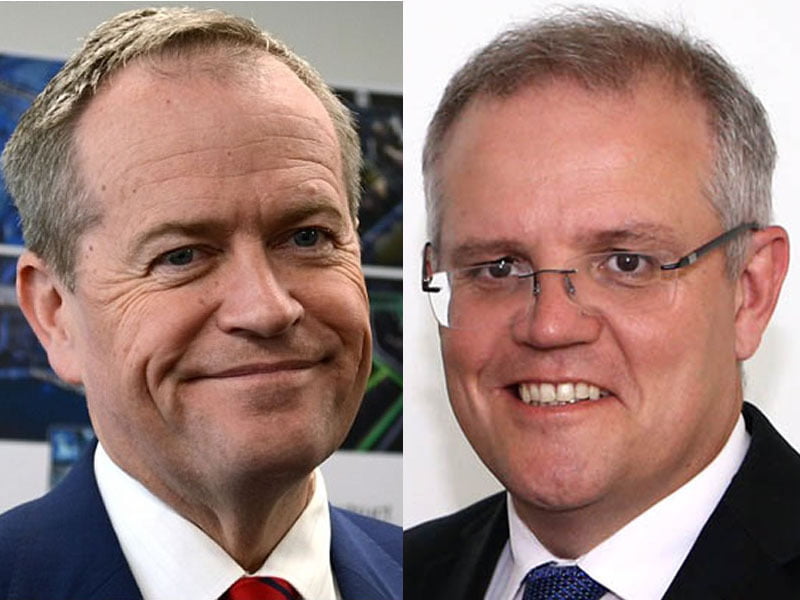While technology and innovation-focused policies have not been nearly as front and centre during this election campaign as they were in 2016, there have still been a number of substantial announcements nonetheless.
Labor has made regular policy commitments through the campaign centred on digital skills and training, while the Coalition has focused its attention on business as usual and the strength of its existing policies, with some funding top-ups and new policies for the space and cybersecurity sectors.
The Coalition has been widely criticised by the tech sector for ignoring the industry since the launch of Malcolm Turnbull’s National Innovation and Science Agenda in late 2015, and has mostly steered away from announcements in the area in this election cycle.

While Labor has generally shied away from committing new direct funding for tech businesses, the Coalition announced $100 million in funding for its Australian Business Growth Fund.
While not mentioning the tech sector in the announcement, the fund has been labelled “startup policy by stealth”, and will offer “patient capital” in the form of equity funding for early-stage businesses.
If it wins Saturday’s election, the Coalition will also top up the popular Export Market Development Grant scheme with a further $60 million. The scheme provides reimbursement for export promotion expenses for businesses with annual turnover less than $50 million, with the expenses including activities like attending international trade shows, digital advertising and marketing consultant fees.
The Coalition has also pledged to provide $156 million for cybersecurity, with $50 million going towards a Cyber Security National Workforce Growth program, and $40 million to a Countering Foreign Cyber Criminals capability within the Australian Cyber Security Centre.
In terms of tax policies, the Coalition has announced it will bring forward its plans to cut small business tax to 25 per cent to July 2021 after its cut to 27.5 per cent passed Parliament with support from the Opposition. It also plans to extend the instant asset write-off scheme to mid-next year and increase its threshold to $30,000.
Labor has focused its digital and tech election policy announcement on skills and training, led by shadow digital economy minister Ed Husic, instead of direct funding and support for startups and tech firms.
“What I want government to invest dollars into is human capital,” Mr Husic said.
“I have to be completely upfront that [the ALP] hasn’t announced many investment funds through this campaign. I’ve resisted this because – from my point of view – I would rather private capital support investment in early-stage firms.”
There have been a number of announcements focused on digital skills, and ensuring Australians are ready to embrace new technologies and take on the jobs of the future.
These have included $25 million for regional digital skills hubs and a $5 million Digital Skills Centre of Excellence, the waiving of upfront fees for 5,000 technology and communications TAFE courses, a $4 million national artificial intelligence centre in Melbourne and a $3 million blockchain academy in Perth.
Labor also pledged to establish an ASIC presence in Perth to help FinTechs remain in the west, to reinstate the popular games investment fund with $25 million in funding and a $15 million new health technology accelerator and simulation facilities in Melbourne’s east.
Shadow industry minister Kim Carr focused on the local electric vehicles industry, including $57 million in funding to help build a new local automotive industry focused on technology and research and development. Labor’s national electric vehicles package also included a target of 50 per cent of new car sales being electric by 2030.
While Labor has promised to crackdown on the exploitation of 457-style visas and the use of foreign workers when locals would be employed, the party has claimed this will not impact the tech sector and its efforts to combat the growing skills gap.
If it wins the election, Labor will launch a new four-year SMART visa to help companies attract “educators, innovators and researchers of a global standing”.
Labor’s policy costings revealed a $309 million cut to two of the Coalition’s flagship innovation policies: the Industry Growth Centres and the Entrepreneurs’ Programme.
It plans to halve the capital gains tax discount, while aimed at wealthy property investors, has also stoked concerns in the startup sector that this would act as a disincentive for investment in the industry in the long-term and lessen gains for founders. The scheme only applies to companies founded after 1 July 2020 and is grandfathered.
Whether it wins the election or not, Labor has also committed to moving a series of amendments to the highly controversial encryption powers that it supported at the end of last year. These amendments will include requiring judicial oversight and a review of the economic impact of the new powers.
Do you know more? Contact James Riley via Email.

